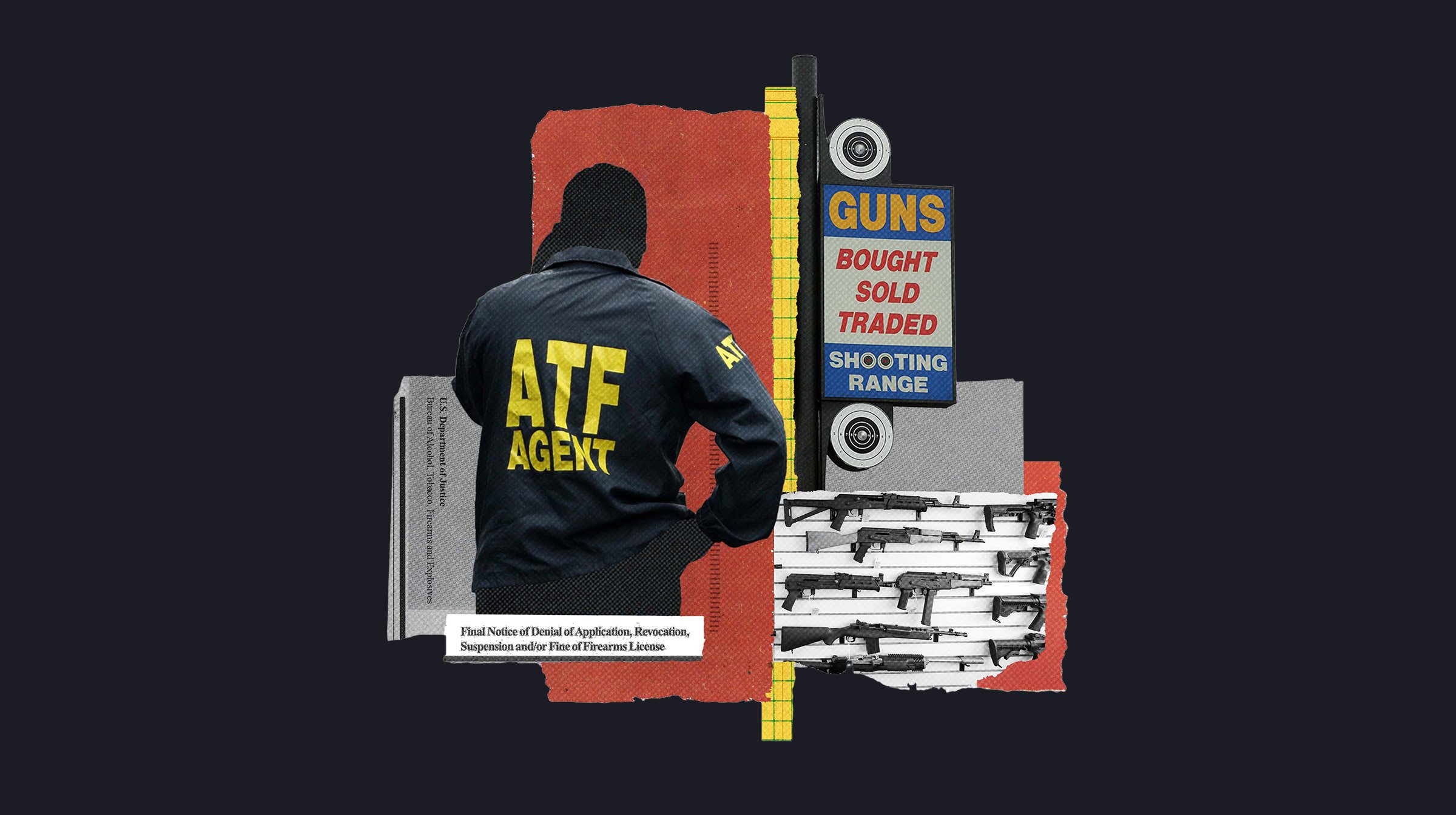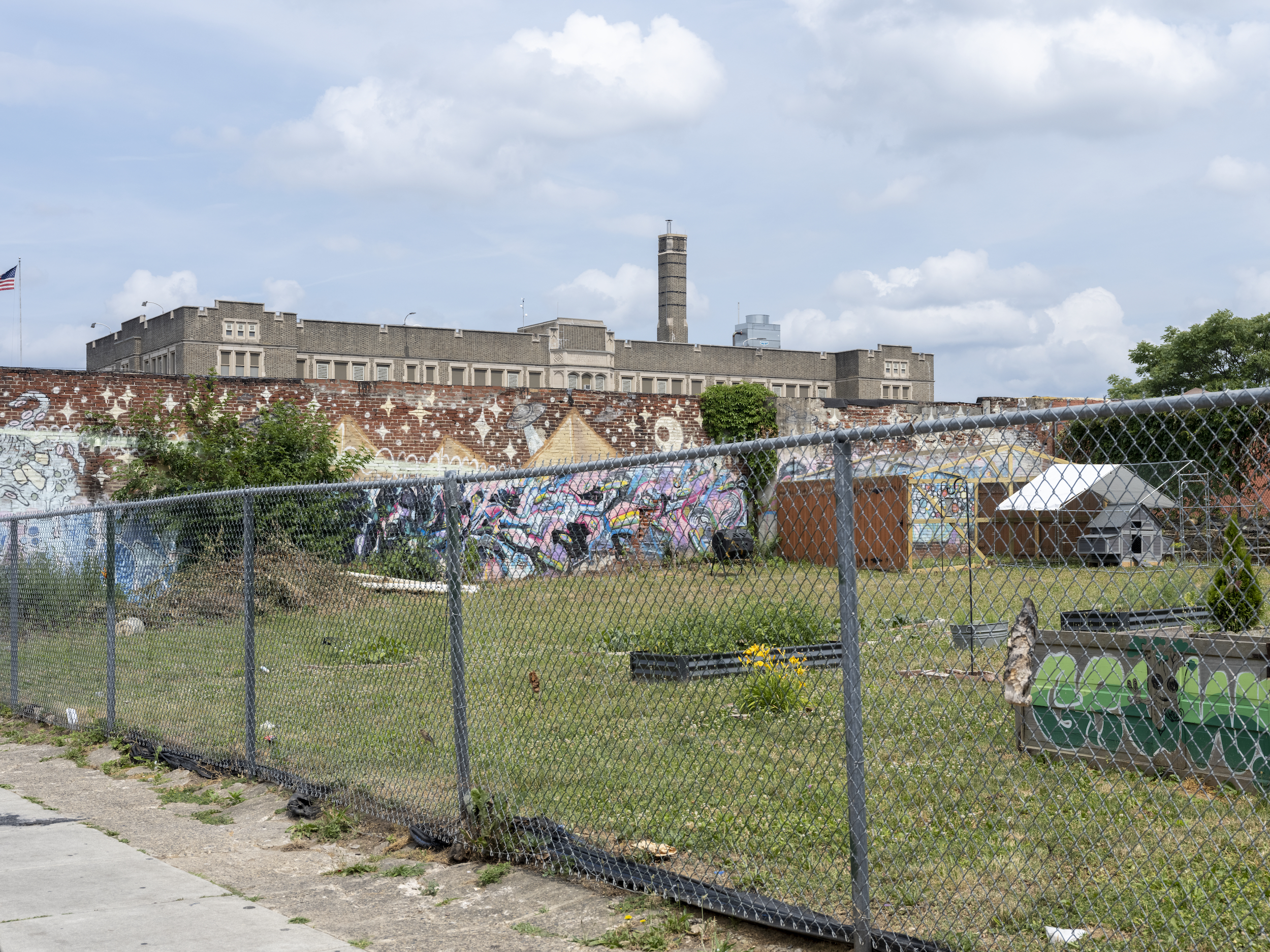Lawmakers pointed to a recent investigation by The Trace and USA TODAY as proof that more should be done to regulate the country’s gun sellers.
When New York’s state Legislature took up a bill to crack down on errant gun dealers last week its author, Senator Zellnor Myrie, praised the “explosive report” by The Trace/USA TODAY. Myrie said the Bureau of Alcohol, Tobacco, Firearms and Explosives is a “disgrace” for not providing stricter oversight of the firearms industry.
“You can read through these reports and see state-by-state the guns flowing to New York,” the Democrat said. “The ATF has not been up to the job, and the industry has been immunized from coming to court. If the ATF won’t take on these bad actors, then the victims should be able to do it themselves.”
U.S. Representative Joe Morelle, a Democrat from upstate New York who has authored legislation to bolster the regulations governing gun dealers, vowed to continue pushing for budget increases to help the ATF conduct inspections on a more consistent basis, but he said the The Trace/USA TODAY investigation showed him there were systemic issues within the agency that couldn’t be solved by money alone.
The investigation found that inspectors routinely document violations at shops around the country, only to be overruled by higher authorities to issue warning letters instead of revoking licenses.
Morelle said he found it “mind blowing” and “incredibly frustrating” to see how reluctant the ATF was to shutter dealers with lengthy histories of violations. “Compliance relies in large part on a degree of sanctions,” Morelle said. “Unless there’s a sea change in attitudes at the agency itself, all the money in the world and all the additional investigators won’t matter.”
A spokesperson for the ATF said the bureau recently hired 20 new investigators and is in the process of recruiting 100 additional investigators in the next year, “to increase inspections to help ensure compliance and appropriate enforcement action.” The positions begin at a salary of $37,674.
Morelle said he was considering asking the Justice Department for more information about issues highlighted in the The Trace/USA TODAY report. He urged President Joe Biden’s pick to lead the ATF, David Chipman, to make reforming the inspections program a priority if the Senate confirms his nomination.
During a May 26 Judiciary Committee hearing, Chipman, a former ATF agent who now works for the gun control group Giffords, faced scrutiny from a number of Republican senators. They called into question how his activist roles could impact his tenure as an ATF director. Gun rights groups, including the National Shooting Sports Foundation, have ramped up lobbying in recent days, particularly to moderate senators who could sway the anticipated 50-50 party-line vote.
Chipman has declined to comment on The Trace/USA TODAY findings, but pledged during his confirmation hearing to review gun shop inspections if approved as the next ATF director.
The investigation drew the attention of gun blogs and prominent voices. Cam Edwards, editor of BearingArms.com, accused reporters behind the project of being anti-gun. He called into question the timing of publication the same week as Chipman’s confirmation hearings.
“While the new series by USA TODAY and The Trace is meant to bolster the argument that the ATF needs a permanent director like Chipman to whip agents into shape and to close gun shops that have repeatedly run afoul of the agencies regulations, you could also make the argument that, if the agency is truly as soft on wayward gun dealers as the reporters claim, that an ATF veteran like Chipman has been part of the problem,” Edwards wrote for the site. “After all, he spent 25 years as an ATF agent, including several years where he was head of the Firearms Division.”
In Philadelphia, which is enduring a record number of homicides this year, City Councilman Kenyatta Johnson said the The Trace/USA TODAY report underscored a need for the ATF to curb illegal gun running and make sure weapons are not winding up in the wrong hands.
“I have not seen ATF in the city of Philadelphia addressing this issue aggressively or with a sense of passion and dedication,” said Johnson, who chairs the Council’s Special Committee on Gun Violence Prevention. “Hopefully the new president and the new head of ATF will get them to take that type of approach.”
Johnson also wants the ATF’s Philadelphia Field Division to do a better job of coordinating with state and local law enforcement to curtail the violence that is taking a disproportionate toll on the lives of young Black and brown men.
Over the last 17 months, gunfire has injured or killed more than 800 Philadelphians under the age of 21. Mayor Jim Kenney has proposed spending $34 million on anti-violence initiatives in the 2022 fiscal year that begins July 1, but the violence has prompted Johnson and other city leaders to push to increase that amount to $100 million, using federal coronavirus relief funds.
Johnson said he hopes the ATF will work closely with the city in its efforts. “We have to take an all-hands-on-deck approach to tracking down where illegal guns are coming from and solving the problem of gun shops and gun shows selling firearms to people who may not be qualified to own them,” Johnson said. “That means local law enforcement, state law enforcement, and federal law enforcement need to be involved.”
In New York, Myrie’s bill would expose gun dealers to civil litigation if plaintiffs can prove they have become a public nuisance – the legal standard that has been used to sue opioid manufacturers in recent years. He cited The Trace/USA TODAY investigation as evidence that the so-called Iron Pipeline firearms trafficking corridor from Southern states to the New York metropolitan area remains a problem.
“You have to stop the flow of illegal guns or this problem of shootings will persist,” he said. “There’s one set of rules for East Flatbush in Brooklyn and another for shops in Ohio, Florida and Georgia, it seems.”
The New York effort takes direct aim at the 2005 Protection of Lawful Commerce in Arms Act that generally prohibits civil lawsuits against gun manufacturers and dealers. One of the exceptions it seeks to exploit is known as the “predicate exception,” which allows suits alleging violations of state public nuisance laws. The legal battle has been examined by several federal appeals courts that reached different conclusions.
The leading industry group for gun dealers, the National Shooting Sports Foundation, opposes the measure. Larry Keane, the group’s senior vice president, described the legislation as misguided in a recent online commentary.
“The PLCAA keeps activist trial lawyers and gun control groups from placing the blame on the industry for the criminal misuse of legal firearms that are lawfully sold,” Keane wrote. “Sen. Myrie’s proposal would be akin to a state allowing a lawsuit to be brought against Ford for the actions of a drunk driver that killed someone after getting behind the wheel.”


